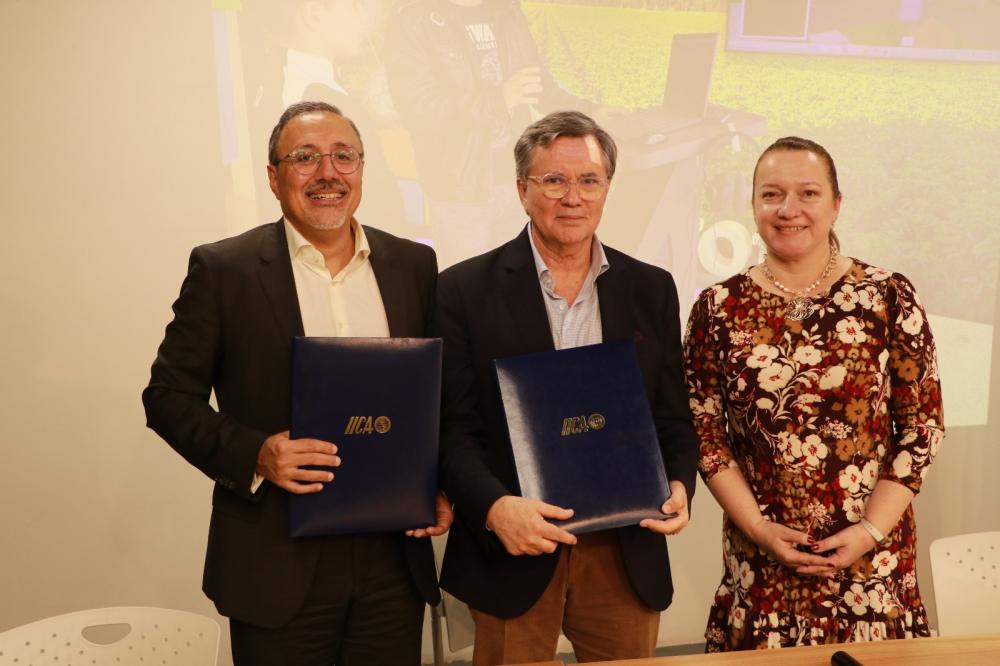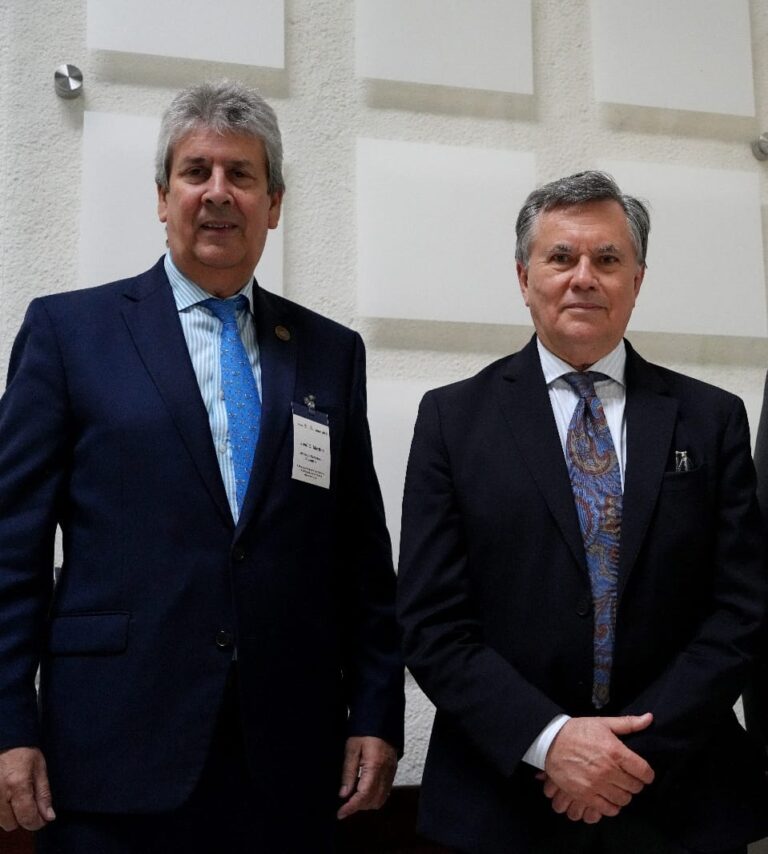The purpose of the agreement is to promote the sustainable transformation of small-scale agriculture by increasing productivity while conserving natural resources.

San José, 28 November 2024 (IICA). Bayer and the Inter-American Institute for Cooperation on Agriculture (IICA) have decided to deepen their partnership and implement a capacity building program for the 17 million family farmers in Latin America and the Caribbean.
The commitment was set out in a memorandum of understanding signed by Bayer’s Global Vice President of Smallholder Farming, Ronald Guendel, and IICA Director General, Manuel Otero, who highlighted the fact that family farmers account for 80% of the production of the food consumed in the region. (Bajada)
The purpose of the agreement is to promote the sustainable transformation of small-scale agriculture by increasing productivity while conserving natural resources.
Bayer was one of the IICA partners that made possible the creation of the Interpretative Center for Tomorrow’s Agriculture (CIMAG), a groundbreaking space that combines agriculture and education. Operating at the Institute’s Headquarters in San José, Costa Rica, it shows how digital technologies are capable of transforming and improving agriculture, rural life and food security in the Americas.
The company is also a strategic partner of the “Living Soils of the Americas” initiative, launched in 2020 by IICA and renowned scientist Rattan Lal to combat soil degradation, a phenomenon that threatens the capacity of the countries to meet the demand for food in a sustainable manner.
Recently, Bayer was also one of the private sector partners that enabled IICA to operate the Home of Sustainable Agriculture of the Americas pavilion at the United Nations Conference on Climate Change (COP 29), which took place in Azerbaijan. There, the agriculture sector presented the progress being made towards achieving greater sustainability, and demonstrated that it is part of the solution to the environmental crisis.
The two organizations are also working together to conduct research projects on the situation of rural connectivity in the Americas, and, along with Internet access in rural areas, to promote digital literacy.
Ambitious goals
The joint work will be carried out as part of Bayer’s global initiative designed to benefit 100 million farmers worldwide by 2030 through strategic partnerships aimed at providing training in sustainable, profitable and low-carbon production.
These actions underscore IICA’s position as an institution that is setting the bar for excellence in the implementation of transformative actions on behalf of family farmers in Latin America and the Caribbean.

“IICA is a very important partner for us and for our goal of empowering 100 million small farmers across the world,” said Guendel on behalf of Bayer, a company dedicated to scientific research aimed at improving production.
“IICA’s role in Latin America and the Caribbean is key in terms of training, as it provides technological tools and training for small producers so they can tap into new markets and improve their quality of life. For a company committed to innovation like Bayer, it is essential to have the support of an international organization of this magnitude, which has the same objective of improving agriculture worldwide through science,” he added.
Public-private collaboration
Manuel Otero noted that Bayer and IICA have been working together for a number of years, and highlighted the importance of collective action and public-private collaboration to address the growing challenges facing agriculture.
“The definition of an ideal strategic partnership,” he said, “would be one in which the two parties trust each other, where there is no bureaucracy involved, and where the results can be seen. I think our partnership with Bayer is like that.”
Otero added: “We signed this document because we want to make it clear that we are on board with this Bayer plan in support of 100 million family farmers around the globe, and because we want to be seen as a benchmark institution for Latin America and the Caribbean. We believe it is important to emphasize our commitment to regenerative agriculture, which gives life to rural areas.”
Alejandra Castro, Vice President of International Affairs and Sustainability Strategy at Bayer Crop Science, also took part in the signing ceremony. She emphasized that the agreement is a continuation of the work that Bayer and IICA have been carrying out for many years.
“We have worked on multiple projects with IICA and its member countries to improve soil health, promote regenerative agriculture, and optimize water management. This agreement will reinforce a series of principles that aim to help small farmers through investment in capacity building, with the aim of protecting the environment, but also of making agriculture more profitable,” Castro explained.
More information:
Institutional Communication Division.
comunicacion.institucional@iica.int











